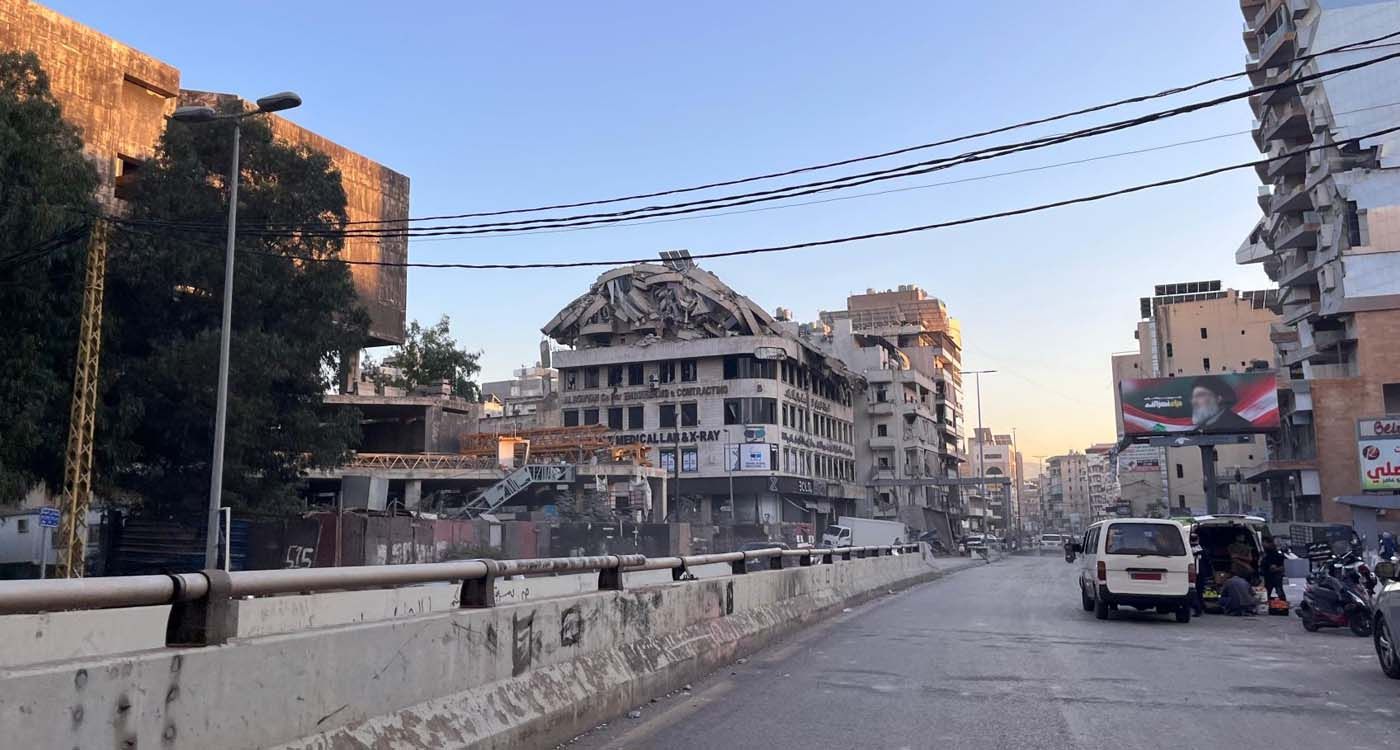
It is 4 PM when we enter Chiyah, a neighborhood in Beirut’s southern suburbs. Navigating through debris, we make our way to the site of the latest Israeli airstrike, which occurred just a few hours earlier. A five-story building lies gutted, its top two floors reduced to rubble. Despite the devastation, the main street running alongside remains lively. Numerous shops, battered by the blast, continue their activities. Shattered windows, torn shutters and parking lots strewn with debris bear silent witness to the violence of the strike.
Some shop owners sweep debris from what remains of their storefronts, while others go about their day as if nothing has changed, grocery bags in hand or smoking a shisha. “I won’t leave,” insists a man in his forties, gesturing toward a destroyed building across the street. “I was here this morning when the bombs fell. But I want to stay. My livelihood is here.”
Whether out of necessity or lack of alternatives, many choose to stay in this neighborhood. Their daily lives are dictated by Israeli army evacuation warnings, bombings and the relentless hum of drones overhead. A few meters away, a group of young men in their twenties stand chatting. Among them, Abdallah*, a mechanic insists he is not afraid. Another chimes in, “Where else would we go?”
For outsiders, this reaction might seem surprising. However psychoanalyst David Sahyoun points to several explanations, including the role of identity. “This behavior reflects a deep emotional attachment to the places these residents have called home—places filled with cherished memories, which become a part of them. How can one resign themselves to abandoning a part of their very being?” he explains. Sahyoun also notes the fear of the unknown as another key factor. “The unknown can feel more threatening than immediate danger, leading individuals to remain in familiar, albeit dangerous, environments. Losing one’s home represents, for many, a significant loss that brings feelings of anxiety and emptiness. It often creates a desire to cling to what remains, even at the cost of psychic pain.”
According to a recent World Bank report, around 11% of businesses in conflict zones have been damaged by the ongoing Israeli airstrikes.
As we move deeper into the neighborhood, the air grows thick and unbreathable. Dense smoke billows from a recently bombed building, spreading through the adjacent streets. A few blocks away, Ali*, a street vendor selling coffee, has set up his stand at the base of a ruined building. Between customers, he takes a phone call with his wife. “She’s safe in Jbeil,” he tells us. “But I’m staying here. My work is here. This is my neighborhood, my life.”
“These residents often downplay the imminent danger as a coping mechanism, maintaining a semblance of normalcy in a daily life that has become unbearable, indicates Sahyoun.
Still, the intensifying bombings and the dangers they bring have severe psychological repercussions. “The inhuman violence of this war inevitably leaves its mark, resulting in trauma and its consequences,” says Sahyoun. The symptoms are varied. “Chronic anxiety, sadness and, for some, profound despair. These feelings are often accompanied by flashbacks of dramatic events,” he explains. Others experience hypervigilance, an exaggerated state of alertness. “In this state, individuals feel endangered by even the slightest noise or irregularity, unable to relax even in relatively safe situations,” Sahyoun adds.
The effects don’t stop there. Victims may also suffer relationship difficulties or dissociative symptoms, disconnecting from their emotions or surroundings to shield themselves from unrelenting anxiety and emotional pain.
As the war drags on, the conflict has already claimed at least 3,645 lives, according to the Ministry of Health, with 15,355 injured—numbers that don’t account for the “invisible” wounds. “It’s crucial to provide those suffering from trauma with a therapeutic space to express their pain and grief,” emphasizes Sahyoun. “Gradually, this allows them to weave their experiences into a meaningful narrative, reclaiming their sense of identity and history.”
*Names have been changed to protect the identities of those interviewed.




Comments